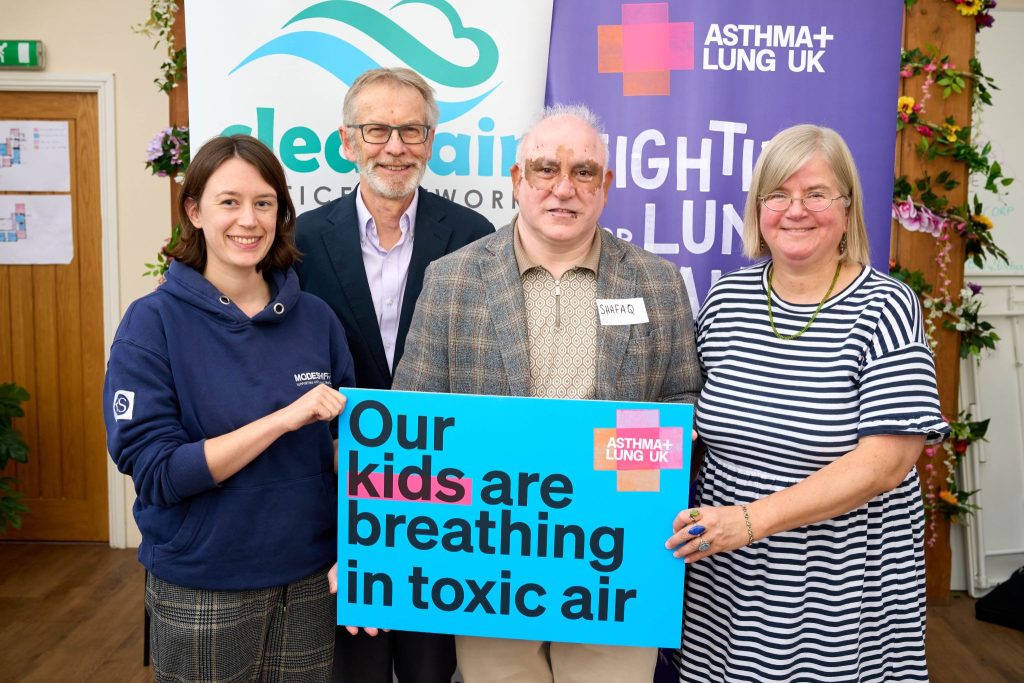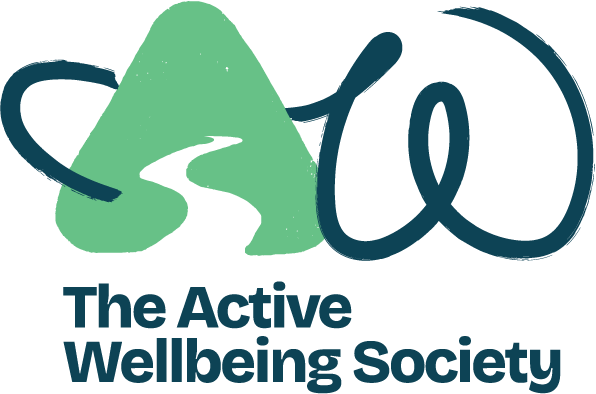People in Birmingham are breathing air that the World Health Organisation classes as unsafe for human health. What can you do about an invisible problem, which has many causes and needs as many solutions? The Birmingham Clean Air Community Conference, co-hosted by the Clean Air Justice Network and Asthma + Lung UK brought people together to consider this very question.
At TAWS we believe in working collaboratively with people and partners to drive positive systems change for everyone, particularly those who are disadvantaged. Tackling the air quality in Birmingham is no different. At the Clean Air Community Conference people called for all hands on deck to make sure that everyone can breathe clean air.
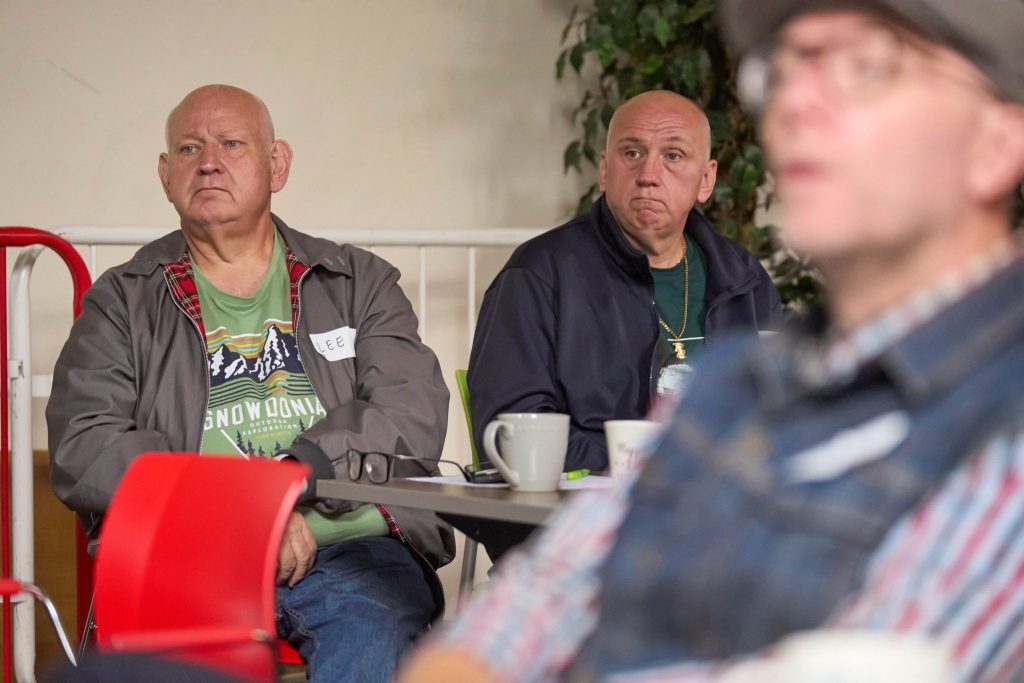
The Clean Air Justice Network is facilitated by The Active Wellbeing Society. This network of local people and campaigners, politicians, business owners and professionals from community, health, education organisations was established in January 2023 to advocate for equity in air quality as a social justice matter. We recognise that while poor air quality affects us all, some communities are affected more than others.
By coming together, we hope to harness our collective impact to improve air quality in Birmingham and influence local and national policy. To achieve this, we work across three areas;
- Raising awareness of the effects of poor air quality and tactics to improve it
- Working with children and young people
- And working with communities on the issues that affect them.
For the Clean Air Community Conference, we partnered with Asthma + Lung UK, a national charity which works to prevent lung disease and improve care for those with respiratory illness. Like the Clean Air Justice Network, they fight for everyone’s right to breathe regardless of income, age, ethnicity, gender, or background.
The Clean Air Community Conference
In early October, 24 local people met in the heart of Tyseley for the Birmingham Community Conference to share ideas for how we can clean up the air we breathe in Birmingham. All were welcome, from seasoned campaigners to those who are beginning to learn about the issue.
Regional Campaigns and Policy officer for Asthma + Lung UK, Maddy Dawes shared how in Birmingham, the poorest people live near busy main roads where air pollution is higher and added that many of those affected (32% of households in Birmingham) don’t even have access to a car. She highlighted how rates of lung disease are higher in poorer communities and how these conditions are worsened by poor air quality. She also shared some good news—since the Clean Air Zone has been introduced, nitrogen oxide levels in the city centre have decreased by 17% and there has been an average annual drop in particulate matter since 2019. We are on our way to better air, but it’s a journey!
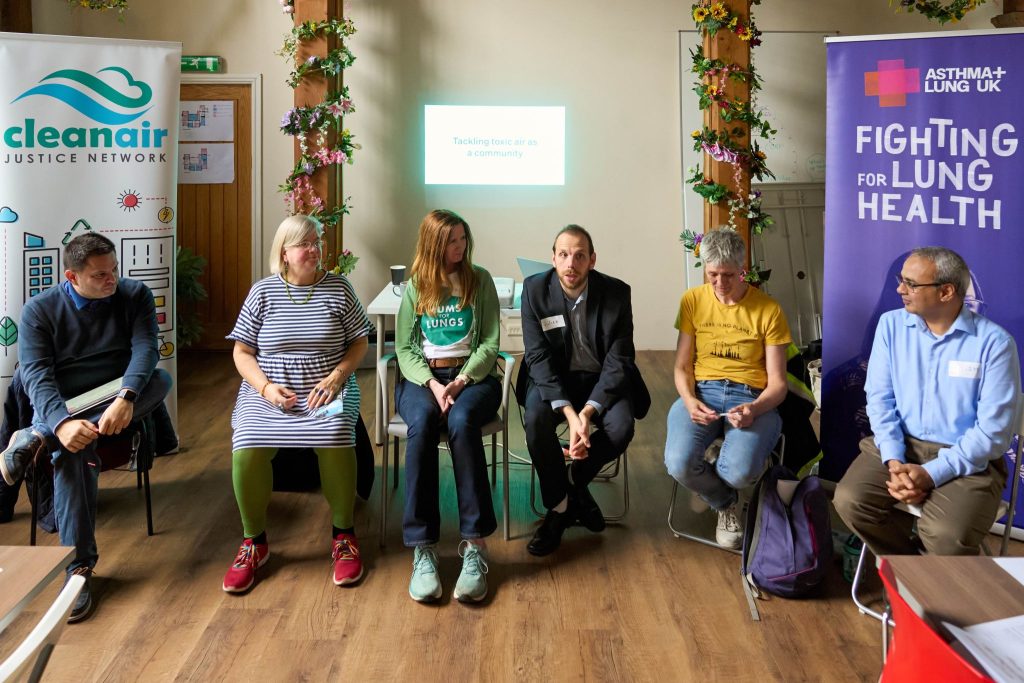
On the panel entitled ‘Tackling toxic air as a community’ we heard from Cllr Liz Clements, Kirsten de Vos (Mums for Lungs), Dr Satish Rao, Cllr Izzy Knowles, Cllr Julien Pritchard on their priorities and concerns. Topics ranged from cross-party working, to cycle confidence, our public transport, the effects on our health, to placemaking, town planning and more. Speaking last, Councillor Liz Clements summarised, “We have to fight for what we believe is right and clean air in the city is good for everyone but particularly our children. We have a shared agenda and that’s what we need to stand up for particularly running into another general election.”
Together, attendees shared personal stories, innovative ideas from elsewhere, their priorities and ways we could collaborate to tackle the issue.
What we took away
Clean air is a health issue
Air quality is above all else, a health issue. Raising awareness is key to ensuring solutions and policies
receive genuine support. Equipping people with the knowledge they need to protect themselves and
to mobilise others to take action, is also vital.
If we care about our children, we should care about poor air quality
Air quality is particularly harmful for growing children—affecting their heart, lung, and brain
development – and working with children and families is a way to educate people of all ages about
the impact of poor air quality in a way that is meaningful to them.
Every little counts
Even small behaviour changes can make a difference (25% of car journeys in the UK are distances of
less than a mile). Working with key system partners, we need to continue collectively campaign for
people-centred public transport options.
Communities are key
This affects us all and local people need to be the voice of the campaign representing their
communities—we need to get out into those communities, sharing messages which are compelling
and practical.
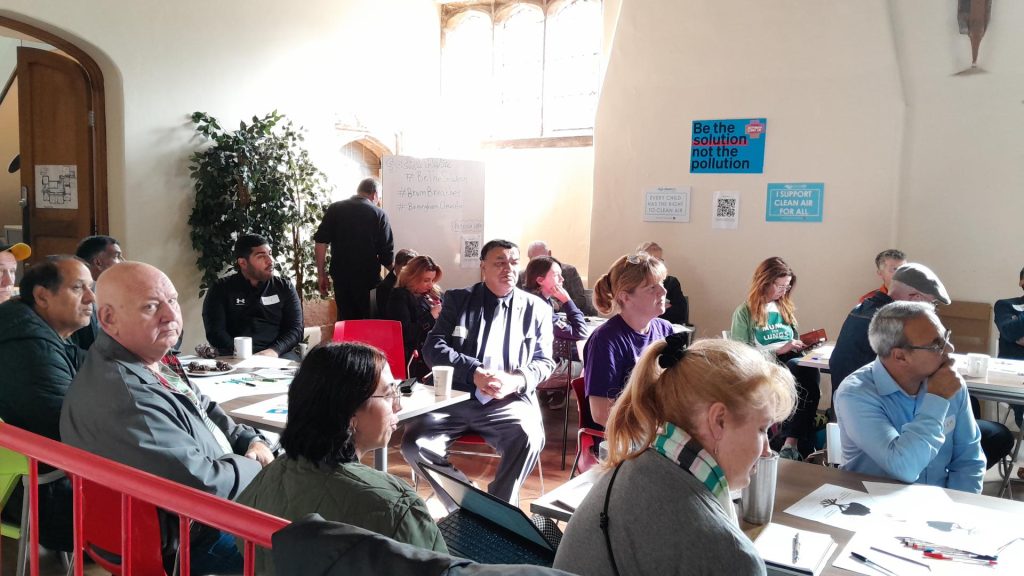
What's next
Closing the event, Councillor Waseem Zafar said “We need to campaign right across Birmingham to win the hearts and minds of communities, we need create activists who are equipped with the skills
knowledge and understanding to match the scale of the challenge we’re facing. We hope today’s conference is a catalyst for real energy and community campaigning about an issue that is very
important in our city and society. “This event is only the beginning that we hope will spark real and lasting change.”
- Share your story about how air quality affects you
- Volunteer to support events
- Have a chat with us about your ideas for campaigning in your community
To find out more and get involved, follow @CleanAirJustice or [email protected] and follow
@asthmalunguk for information and advice about the effect of air quality on your health.
